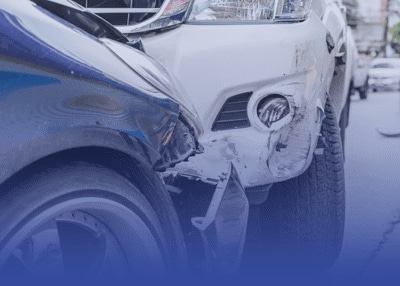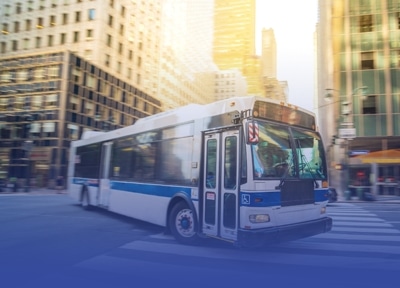20 June, 2023

Driving at night is far more hazardous than driving during the day. As daylight dims into darkness, the low light conditions negatively impact our depth perception, peripheral vision, and color recognition. All of these factors can contribute to why motorists become more accident prone when driving at night. Despite there being 60% less traffic on the roads at night, roughly 40% of all accidents occur after sunset.
At The Barnes Firm, we understand that roads become increasingly dangerous for drivers at night. If you or a loved one have been involved in a car accident that happened at night, contact The Barnes Firm at (800) 800-0000 for more information or a free case evaluation.
Driving at night can be challenging and even dangerous if you’re not careful. However, there are some simple tips you can follow to stay safe on the road when it’s dark. To ensure your safety when driving at night, consider the following safety tips:
Even with these safety tips and precautions met, accidents still happen. If you, or someone you know, has been injured in a car accident at night, call The Barnes Firm. Our team of experienced car accident attorneys can help you navigate the legal process and pursue the compensation you deserve. Call The Barnes Firm today at (800) 800-0000 for a free case evaluation.
Practice Defensive Driving at Night
Defensive driving is when a motorist uses various driving skills to stay alert, expect the unexpected, and maintain control. This can be practiced both during the day and at night, but is especially important at night. Here are some techniques for defensive driving:
Practicing defensive driving can help to keep you safe on the road. However, other drivers who don’t practice this can still cause accidents. If you or a loved one has been injured in an accident caused by another driver at night, call us. At The Barnes Firm, our team of car accident attorneys will work tirelessly to help you receive the compensation you deserve. Call The Barnes Firm today at (800) 800-0000 for a free case evaluation.
For motorcyclists, being visible and prioritizing safety on the road at night is crucial. Here are some tips to help motorcyclists enhance their visibility and during nighttime rides:
Remember, being visible and safe on the road at night is a shared responsibility between drivers and motorcyclists. While these tips help increase your safety on the road at night, it’s also important to anticipate the actions of other drivers and remain vigilant throughout your travels. At the Barnes Firm, we understand the importance of driving and riding safely at night. For more information, contact us at (800) 800-0000.
At The Barnes Firm, we understand the various dangers associated with driving at night. From unforeseen obstructions in the road to the negligence of other motorists at night, the likelihood of getting into an accident at night is significantly higher than during the day.
If you have been injured in a car accident at the fault of someone else at night, do not hesitate to contact our team of experienced car accident lawyers at The Barnes Firm. Our car accident attorneys have the necessary experience, skills, and expertise to help secure the financial compensation you deserve. Call us at (800) 800-0000 for a free case evaluation. It could be the best call you make.
Written by The Barnes Firm, reviewed by Richard Barnes

Rich Barnes
President
Richard Barnes: “As President of The Barnes Firm, I have dedicated my career to achieving justice in hundreds of cases for the victims of injuries caused through the fault of others. Additionally, I have been honored to have been elected Best Lawyer and a Super Lawyer”
Years of Experience: 30+ years
LinkedIn Profile: Richard Barnes


This page has been written, edited, and reviewed by a team of legal writers following our comprehensive editorial guidelines. This page was approved by attorney president Rich Barnes who has more than 30+ years of legal experience as a practicing personal injury trial attorney.
The Barnes Firm is here to help you. Our personal injury firm helps individuals and their families who
have suffered an injury in an accident.

Whether your car crash was minor or serious, any injuries sustained in an accident can be painful and costly.

All motorcycle accidents are different, the compensation you receive will depend on the circumstances surrounding your accident.

A truck accident can be catastrophic, even in low-impact crashes, if you or your family are involved, you may be entitled to significant financial compensation.

There are dozens of accidents involving school buses each year, most commonly, involving children outside a school bus.
Explore Articles Related to Your Situation

Distracted driving took the lives of nearly 2,900 people in 2018, including drivers, passenge...
read more
Summer is a time of freedom, fun, and adventure for many teenagers, but it can also be a season...
read more
Tailgating driving occurs when a car maintains too small of a gap behind another vehicle, makin...
read more
Injuries from a car accident should be addressed as soon as possible after an accident. Seeing ...
read moreWe are always available to discuss your case. Give us a call at (800) 800-0000.
Fill out our form and we will contact you shortly to discuss your case
Our attorneys will come to your home, office or hospital at your convenience.
We are available anytime, including after hours and
weekends.
420 Lexington Avenue
Suite #2140
New York, NY 10170
Phone: (800) 800-0000
Fax: +1 (800) 853-5153
600 Old Country Road
Suite #425
Garden City, NY 11530
Phone: (800) 800-0000
Fax: +1 (800) 853-5153
500 Pearl Street
Suite #700
Buffalo, NY 14202
Phone: (800) 800-0000
Fax: +1 (800) 853-5153
451 Grider Street
Buffalo, NY 14215
Phone: (800) 800-0000
Fax: +1 (800) 853-5153
28 East Main Street
Suite #600
Rochester, NY 14614
Phone: (800) 800-0000
Fax: +1 (800) 853-5153
633 West 5th Street
Suite #1750
Los Angeles, CA 90071
Phone: (800) 800-0000
Fax: +1 (888) 800-7050
555 12th Street
Suite #1470
Oakland, CA 94607
Phone: (800) 800-0000
Fax: +1 (888) 800-7050
655 W. Broadway
Suite #940
San Diego, CA 92101
Phone: (800) 800-0000
Fax: +1 (888) 800-7050